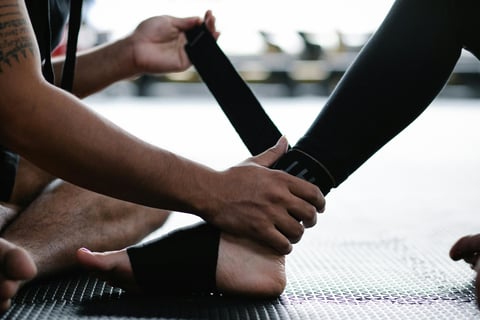The Benefits of Bodyweight Workouts: Why You Should Incorporate Them into Your Routine
In the world of fitness, bodyweight workouts often take a backseat to weightlifting and high-intensity training. However, bodyweight exercises offer a multitude of benefits that make them a valuable addition to any fitness regimen. Whether you're a beginner looking to get started or a seasoned athlete seeking to improve your overall fitness, bodyweight workouts can be incredibly effective. Here's why you should consider incorporating them into your routine.
1. Convenience and Accessibility
One of the most significant advantages of bodyweight workouts is their convenience. You don't need a gym membership, expensive equipment, or even a lot of space to perform these exercises. Whether you're at home, traveling, or outdoors, you can engage in a full-body workout with just your body weight. This accessibility makes it easier to maintain a consistent workout routine, regardless of your location or schedule.
2. Improved Functional Strength
Bodyweight exercises mimic the natural movements your body performs daily, such as squatting, pushing, pulling, and bending. By training these movements, you develop functional strength that translates to better performance in everyday activities and sports. For example, exercises like push-ups, pull-ups, and squats target multiple muscle groups, improving coordination, balance, and stability.
3. Injury Prevention
Because bodyweight exercises involve natural movements and typically do not require additional weights, they are generally safer and put less strain on your joints. This reduces the risk of injury, making them an excellent option for beginners or those recovering from an injury. Additionally, bodyweight workouts can be easily modified to accommodate different fitness levels, allowing for gradual progression without overwhelming the body.
4. Enhanced Core Stability
A strong core is essential for overall body strength and stability. Many bodyweight exercises engage your core muscles as stabilizers, even when they're not the primary focus of the exercise. For instance, exercises like planks, mountain climbers, and leg raises are excellent for building core strength, which can improve your posture, reduce the risk of lower back pain, and enhance your performance in other physical activities.
5. Versatility and Variety
Bodyweight workouts offer endless variety, making it easy to keep your routine fresh and challenging. You can target different muscle groups with a wide range of exercises, from push-ups and dips for the upper body to lunges and squats for the lower body. Additionally, variations such as single-leg squats, handstand push-ups, and plyometric exercises can add intensity and challenge as you progress.
6. Improved Cardiovascular Fitness
Bodyweight exercises can also double as cardio, depending on how you structure your workout. High-intensity interval training (HIIT) routines that incorporate exercises like burpees, jumping jacks, and mountain climbers can elevate your heart rate, improving your cardiovascular fitness while simultaneously building strength. This dual benefit makes bodyweight workouts a time-efficient way to enhance both your aerobic and anaerobic capacity.
7. Cost-Effective Fitness
Investing in a gym membership or home gym equipment can be expensive. In contrast, bodyweight workouts require no financial investment, making them a cost-effective way to stay in shape. All you need is your body, some space, and perhaps a mat for comfort. This affordability makes bodyweight exercises accessible to everyone, regardless of their financial situation.
8. Sustainable Progression
With bodyweight workouts, progression is sustainable and can be adapted to your fitness level. As you become stronger, you can increase the difficulty of exercises by changing the leverage or incorporating more advanced movements. For example, you can progress from knee push-ups to regular push-ups, and eventually to one-arm push-ups. This ability to continuously challenge yourself helps prevent plateaus and keeps you motivated.
9. Holistic Fitness
Bodyweight workouts often emphasize a holistic approach to fitness, focusing on strength, flexibility, balance, and endurance. Yoga, Pilates, and calisthenics are all examples of bodyweight training that promote overall well-being, rather than just muscle gain or fat loss. By incorporating bodyweight exercises into your routine, you can achieve a more balanced and functional level of fitness.
Conclusion
Bodyweight workouts are a powerful and versatile tool for anyone looking to improve their fitness. They offer convenience, functionality, safety, and cost-effectiveness, making them suitable for people of all fitness levels. Whether you're at home, on the go, or simply looking for a change in your routine, bodyweight exercises provide a comprehensive workout that can help you achieve your fitness goals. So, don't underestimate the power of bodyweight training—your body will thank you for it!








